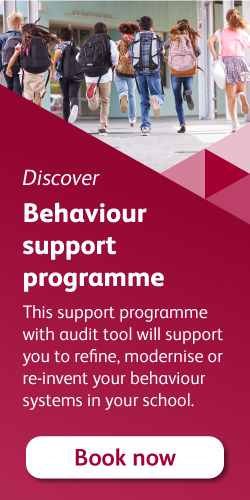
The reality
“We would like you to act up until we can recruit a permanent headteacher.” My CEO sat in the still warm seat of the previous headteacher and looked at me across the desk. I agreed, reluctantly, as I knew the enormity of the task ahead, but also knew as I spoke that my two conditions, finding a permanent solution, and giving me more financial support, were unlikely to both be met. Ofsted arrived for a section 5 inspection four days later, and gave us the report I was expecting: upward movement on curriculum, teaching and learning (the bits I had been leading), but no movement on behaviour and attitudes which were still very poor.
Leadership
Leading a school that remained in special measures, trying to motivate a despondent staff body and, trying to get a grip on behaviour with limited resources was tough. “Behaviour is too boisterous” … “Children do not demonstrate enough respect for teachers or for each other” were two phrases cited by Ofsted. Of course we knew this, we witnessed its effects every day, on children and on staff.
We had a behaviour policy in place, that was logical and made sense to staff, governors, parents, and children, but it wasn’t followed consistently. Some teaching staff believed dealing with behaviour was not their job, whilst pastoral support staff were on their knees with the sheer numbers of children who needed lots of support.
A total overhaul was required, but without the additional financial support I had asked for, was very difficult to implement.
Problems to fix
I had to generate a sense of team ownership and to do this I was incredibly honest about the problems. I sought the views of staff and children about ways to fix them. We focused our CPD on behaviour management at classroom level, and we significantly improved the data systems so that we could track children more closely and monitor interventions for their effectiveness. These things could be done without spending money. We also tightened the behaviour systems and procedures for children, but we still had far too many children in detentions every evening, and the senior team were spending far too much time leading those detentions.
An outside eye
What I needed was a non-judgmental ‘outside eye’ to talk through where we could improve our practice. This is difficult but not impossible as a school in special measures. Government help points you towards the Behaviour Hubs programme, but the school was already part of this programme and still struggling.
Effecting change
Whilst I wasn’t in a position where I could really make the big changes we needed to make (“No additional budget until we appoint the new permanent headteacher”), I knew we could still ensure that the safety and support network around children was stronger and tighter with less holes to slip through.
As educationalists, we continually look for ways to improve our practice, to ensure that we have tried and tested pathways for children who have very specific needs, including those children we have not met before. There are always ways to develop practice, it is part of what makes education so exciting as a profession.
SSAT Behaviour Audit Tool and support programme
The SSAT Behaviour Audit tool provides a list of core statements in six areas of behaviour practice. These are designed to prompt thinking, to help leaders not only decide if systems and structures are fit for purpose, but more importantly how the child fits front and centre into any policy around behaviour. Once the audit is completed, a member of the SSAT education team will visit the school to discuss the review and provide practical suggestions to improve behaviour in your school.
Jackie Rose, Senior Education Lead, SSAT

After studying a B.Ed Hons degree in Primary Education, Jackie worked as a professional contemporary dancer in England and Europe. She taught dance in secondary schools in London and Leeds, then as Head of Performing Arts. Jackie has since had a long career at senior leadership leading teaching and learning, and as a headteacher of two schools in low socio-economic areas. She also has an MBA in Educational Leadership.

